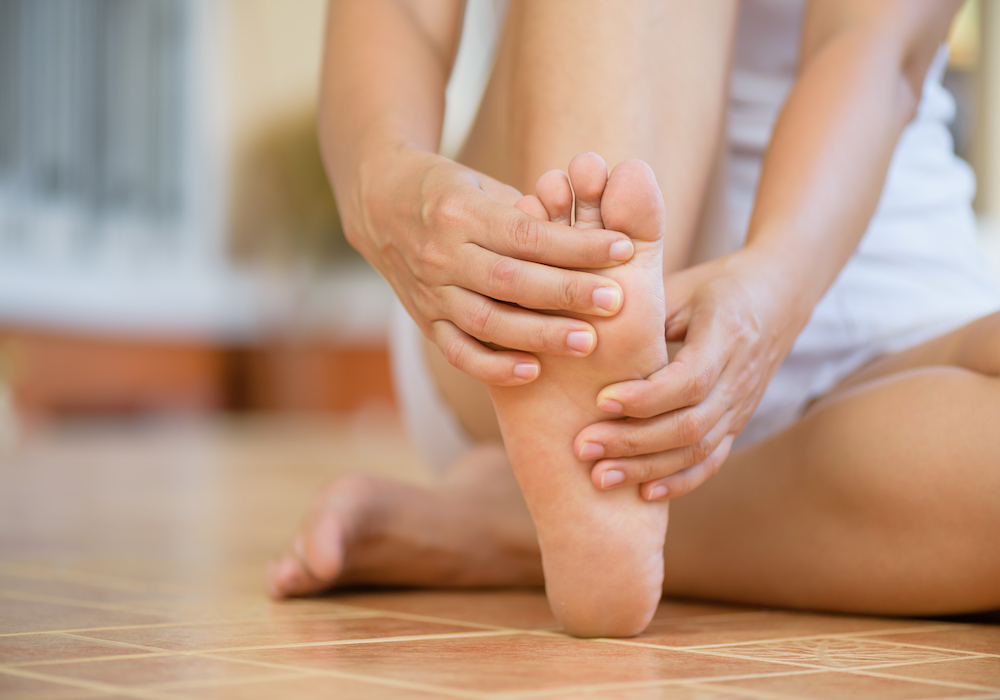THIS POST IS PART OF THE ULTIMATE GUIDE TO A HEALTHY LIFESTYLE
Chronic cardio is not always the answer to losing weight. Cardio exercise is great for your body; however, it’s important to make sure you’re not doing too much.
A moderate amount of cardio helps strengthen your heart muscle, but too much can weaken it, just as too much cardio may decrease your overall energy.
Learn more from Dr. Kevin Sigua, a non-operative pain management physician at OrthoIndy, as he answers the following questions:
- Why do we need cardio?
- How much cardio you should do a week?
- Will cardio reduce muscle mass?
- What are the best type of exercise programs?
Why do we need cardio?
There are a variety of health benefits you can gain by doing cardio exercises; however, listen to your body and make sure you don’t overdo it. “While you will lose fat initially from cardio exercises, eventually too much cardio will cause the loss of muscle mass,” said Dr. Sigua.
If you are unsure about how much cardio you should be doing a week, contact your family physician. Cardio exercising may help you:
- Lose weight
- Speed up your metabolism
- Boost your energy and endurance
- Help control blood pressure
- Strengthen your immune system
- Help prevent diseases
- Improve your Body Mass Index (BMI)

How much cardio should you do a week?
“For someone who’s trying to lose weight gradually, ideally a person should do cardio two to three times a week for 20 to 30 minutes,” said Dr. Sigua. “This is more than enough to help shed calories and help increase endurance to one’s exercise routine.”
Endurance is the ability to exert yourself and remain active for a long period of time. This takes time to build up especially if you’re new to cardio.
Tips to help you start doing cardio
- Start slowly. Gradually add a few minutes to each session then pick up the pace. Start with five to ten minutes every other day and build up your endurance gradually week by week.
- Drink a lot of water. Try to eliminate alcohol and sugary drinks. Add lemons or limes to your water if you’re not used to drinking water often.
- Stretch. Depending on your flexibility, it may be difficult to do certain cardio exercises. Begin doing cardio for a few minutes then pause and stretch; It’s better to stretch when muscles are warm. A proper warm-up increases flexibility and blood flow to a given area.
LEARN MORE HEALTHY TIPS FOR LIVING AN ACTIVE AND NUTRITIOUS LIFESTYLE
Will cardio reduce muscle mass?
“Yes, it can. Cardio workouts on a daily basis without rest can cause a multitude of problems including muscle atrophy, the loss of muscle mass,” said Dr. Sigua. Additional problems include:
- Actual muscle breakdown
- Joint breakdown
- Increased levels of stress
- Increased cortisol levels which negates muscle growth
Dr. Sigua adds, “There are a variety of signs to look for if you’re wondering if you’re doing too much cardio, especially while trying to build muscle.” The symptoms to look for include:
- Constant fatigue
- Insomnia
- Increased stress
- Loss of motivation
- Feeling weaker even if you’ve lost weight
Do you really need cardio?
Cardio has been around for decades and you may have been doing it for quite some time. However, cardio workouts are always evolving. If you’re bored of the same cardio routine, try a new workout program such as HIIT workouts which is ‘High Intensity Interval Training.’ This is a mix of cardio and weight training. HIIT workouts are only 20 to 30 minutes but cause less stress on the joints and, at times, don’t feel like a cardio workout.
“The best exercise program should have a combination of cardio and strength training. However, in order to really see results, consider a good nutrition plan,” said Dr. Sigua. “Most of all enjoy yourself and make this a lifelong journey and not the quick fix.”
Need to lose weight for surgery?
It’s recommended that some people lose weight prior to surgery to reduce surgical risks and improve recovery. If you need to lose weight prior to surgery, discuss a plan with your physician on how to lose weight or download our guide below.
MAKE AN APPOINTMENT WITH A NON-OPERATIVE PAIN MANAGEMENT PHYSICIAN
Schedule an appointment
Your well-being is important to us. Click the button below or call us to schedule an appointment with one of our orthopedic specialists. If your injury or condition is recent, you can walk right into one of our OrthoIndy Urgent Care locations for immediate care. For rehabilitation and physical therapy, no referral is needed to see one of our physical therapists.





